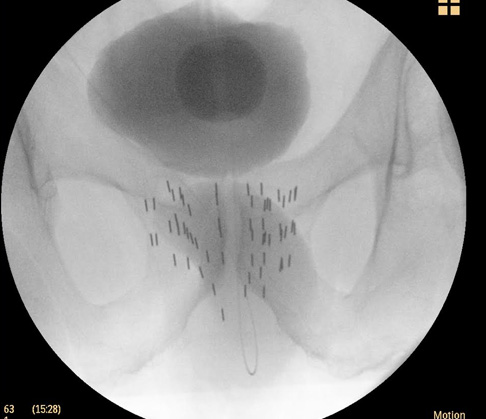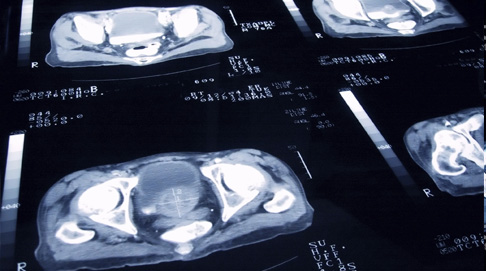Prostate Cancer Investigations
Determining if a man has prostate cancer involves a process of discussion, basic tests including PSA blood testing and prostate examination (DRE) as well as specific tests such as prostate biopsy and possibly scans such as an MRI.
PSA
The initial investigations to determine if a cancer is present include a PSA blood test and a digital examination of the prostate. Unfortunately neither of these tests is accurate or reliable in many cases and in fact they are the basis for a lot of discussion in Urological circles.
The PSA is currently the only available screening test but a high level does not always mean you have cancer and a low level does not necessarily exclude cancer. A high PSA for your age will be an indication for further tests as discussed below. For further discussion on the PSA test, see the menu below – PSA explained.
DRE
An abnormal feeling prostate may also indicate the need for further tests. While the examination to feel your prostate may be uncomfortable, if performed correctly, it should not take long and should not be painful. Prostate cancer is usually associated with hard nodules in the prostate but many cancers are small and will not be obvious on examination. A normal examination does not exclude cancer.

PROSTATE BIOPSY
A prostate biopsy is designed to try and identify the presence of prostate cancer. As will have been discussed with your Doctor, the reason for the biopsy will either be because your PSA blood test is elevated (or has increased at more than the expected velocity) or there was an abnormality felt in the prostate that is suspicious of a cancer. You should have discussed this at length with Dr Ende. Unfortunately we do not have any reliable method of identifying prostate cancer with scans or X-rays and therefore multiple biopsies must be taken from all areas of the prostate to try and identify whether or not a tumour is present.
The biopsy will involve passing an ultrasound probe into your bottom. The prostate lies directly in front of the rectum and can clearly be seen on ultrasound. This allows the Doctor to ensure that all areas of the prostate are covered when obtaining the biopsies.
Prior to the biopsy you will need to take some antibiotics to reduce the risk of infection which will have been discussed in detail.
The biopsy itself is usually very straightforward and is an extremely routine procedure. You will notice some blood in the urine and in your bowel motion for a day or two following your procedure. There may be blood in the semen that lasts for several weeks following the procedure. This is entirely normal and rarely causes any problem.
The prostate swells a little after the biopsy and you may find it a little more difficult to pass urine for a day or two. It is rare to block off the flow of urine but if you experience significant difficulties you should contact Dr Ende or present to your local Casualty.
A rare but significant complication of prostate biopsy is infection. In certain circumstances this can be quite a severe infection and may require you to be in Hospital for several days with intravenous antibiotics. To reduce the risk of infection it is imperative that you take antibiotics as mentioned above and as will have been discussed in detail by Dr Ende. Infection usually occurs within 24 to 48 hours following the biopsy. In this situation patients experience fevers with shivering, shaking and hot and cold sweats. If this occurs you can notify Dr Ende if possible but it is more important to present urgently to Casualty where treatment can be instituted.
The biopsy itself can be performed in the Office and although it is uncomfortable, it is usually tolerated without significant difficulty. The biopsy can also be performed with a general anaesthetic in Hospital and Dr Ende will discuss this with you if you wish. In most cases you will have an appointment to see Dr Ende within a week or so after the biopsy to discuss the results in detail but if possible, you will be notified earlier by phone.

Imaging in Prostate Cancer – MRI
Until recently there was no reliable imaging modality to accurately identify prostate cancer. Ultrasound gives us an idea of the size and shape of the prostate, and information about the bladder, but is not useful for diagnosing cancer
More recently, MRI scanning has been used to image and diagnose prostate cancers. The technology is improving rapidly and cancers can now be detected with more accuracy. The MRI gives us information about the size of the cancer, as well as its location within the prostate. This information is very useful in guiding a biopsy of the cancer for diagnosis as well in the surgical treatment of cancer.
